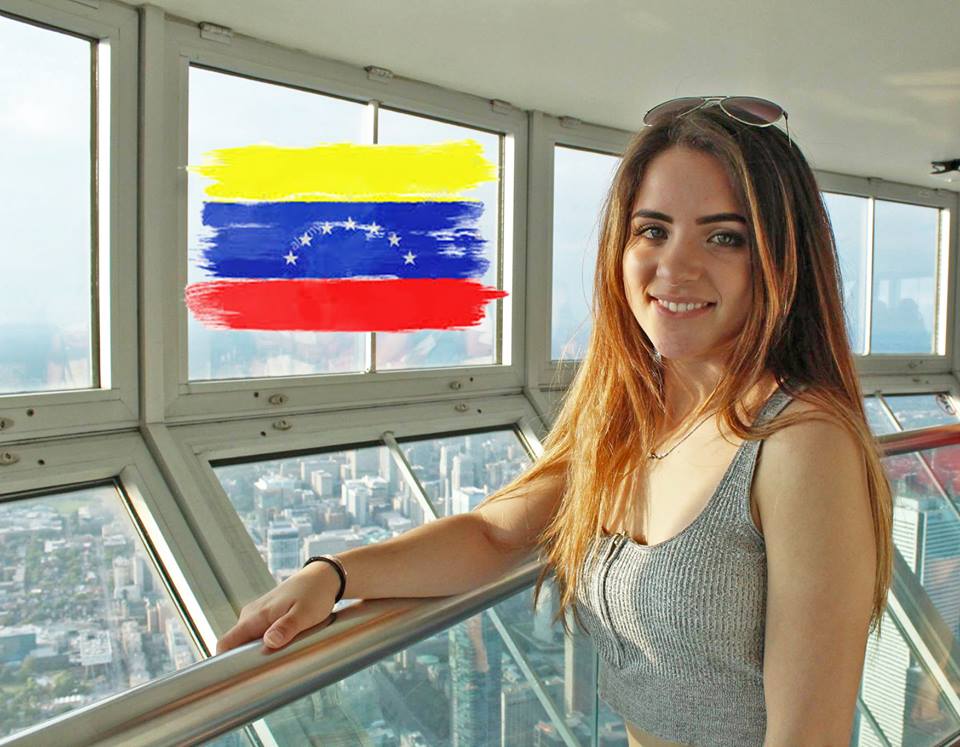Money, power and oil.
These are the things that have been tearing Venezuela apart since 2012. What was once the richest country in Latin America with one of the largest oil reserves in the world, has now suffered a sharper economic drop than the U.S. during the great depression.
Since the election of President Nicolas Maduro, who rules with an iron fist and a repressive and authoritarian regime, the state of the country has been inadequate and the Venezuelan people have been paying the price. The lack of the quality of life and safety is comparable to the plot of the popular Netflix show, Narcos.
Nineteen-year-old Animation student Michelle De Flaviis knows that the unfortunate condition of Venezuela is all too real, and most definitely not just a television series.
De Flaviis fled her hometown of San Antonio de Los Altos with her mother and sister in 2012, which is just an hour away from the capital, Caracas, also known as the murder capital of the world.
“We didn’t want to leave our home, but because of the situation we had to leave before it got any worse,” said De Flaviis.
Venezuelan citizens are currently living without basic human needs of survival like food, clean water and medicine. Supermarket and pharmacy shelves are completely empty and everyone but the government is suffering.
De Flaviis’ family including her father, grandparents, aunts, uncles and cousins are still in Venezuela. “I talk to them every single day,” she said. “They tell me about how they went out and tried to find food and medicine. Every day is a struggle.”
Tracking down food and medicine is a daily errand for Venezuelans in order to stay alive. When oil prices crashed, so did the economy. So everybody is poor.
Citizens are able to illegally purchase food through the black market or they subscribe to getting monthly food baskets that contain the bare basics like bread, milk and sometimes chicken. Baskets cost about 3,185 Venezuelan bolivars which would convert to about $400 Canadian.
Three years ago De Flaviis went back to Venezuela for the first time since moving to Canada.
“When we visited, it was really bad, it was like a sci-fi movie,” she said. “My friends were so skinny because of the lack of food, they were bones. Everyone was starving.”
Accessing medicine is a different story, there are no connections when it comes to medication. De Flaviis’ grandmother, who suffers from heart failure, and grandfather who suffers from brain damage, are in need of medication in order to survive. Since pharmacies are empty and doctors are poor the only way they are able to get medication is through De Flaviis’ aunt.
Her aunt lives in Panama and flies back and forth to Venezuela every three to four months to bring medicine to her parents.
“Travelling back and forth is expensive and Panama is poor too, so who knows how much longer she’ll be able to bring them medicine,” said De Flaviis.
“Pills that you can find at Shoppers drug mart, like Tylenol are inaccessible,” she said. “My friend’s father died because of the lack of medication…If you catch a cold you’re screwed.”
The reason why the country is suffering such an economic crisis is because of uncomplicated greed. And how it all works is quite simple.
Importers bring resources to the country, the government buys it cheap and sells it to citizens for double or triple the price and keep the profits for themselves. Also, if there’s no money, there are no workers, and if there are no workers, the country loses its shape and there are no tourists which means there’s no money coming in. It’s this kind of domino effect and cycle that has put Venezuelans in such a tough position.
The government, on the other hand, are in denial of the severity of the country’s condition. And since the country is ruled by a dictatorship, citizens aren’t able to do anything except protest.
“A few of my close friends went to a protest in Caracas and they were kidnapped and questioned,” said De Flaviis. “They wanted answers but my friends didn’t have any, so a friend of mine actually lost half his finger.”
Since Caracas is the home of most of the countries universities, that’s where De Flaviis’ friends and cousins reside.
According to world atlas, Caracas is listed as the number one most dangerous city in the world.
“Professors are often being pursued for money so they have to cancel classes and stay home for their safety,” she said. “My cousins only make it to class if they don’t get robbed on the bus…It’s like a strike every day.”
Life in Canada is much different for De Flaviis in comparison to what it was like growing up in Venezuela.
“At the beginning, I hated Canada,” she said. “But now I feel free here, I can go outside without fearing for my life.”
Since her last visit, De Flaviis hasn’t been back to Venezuela. “I always have my family in the back of my mind…I have anxiety thinking about my granny and if I’m going to be able to see her face to face again.”
“But I prefer to remember Venezuela as what it was during my childhood, not this, this is not my Venezuela.”


